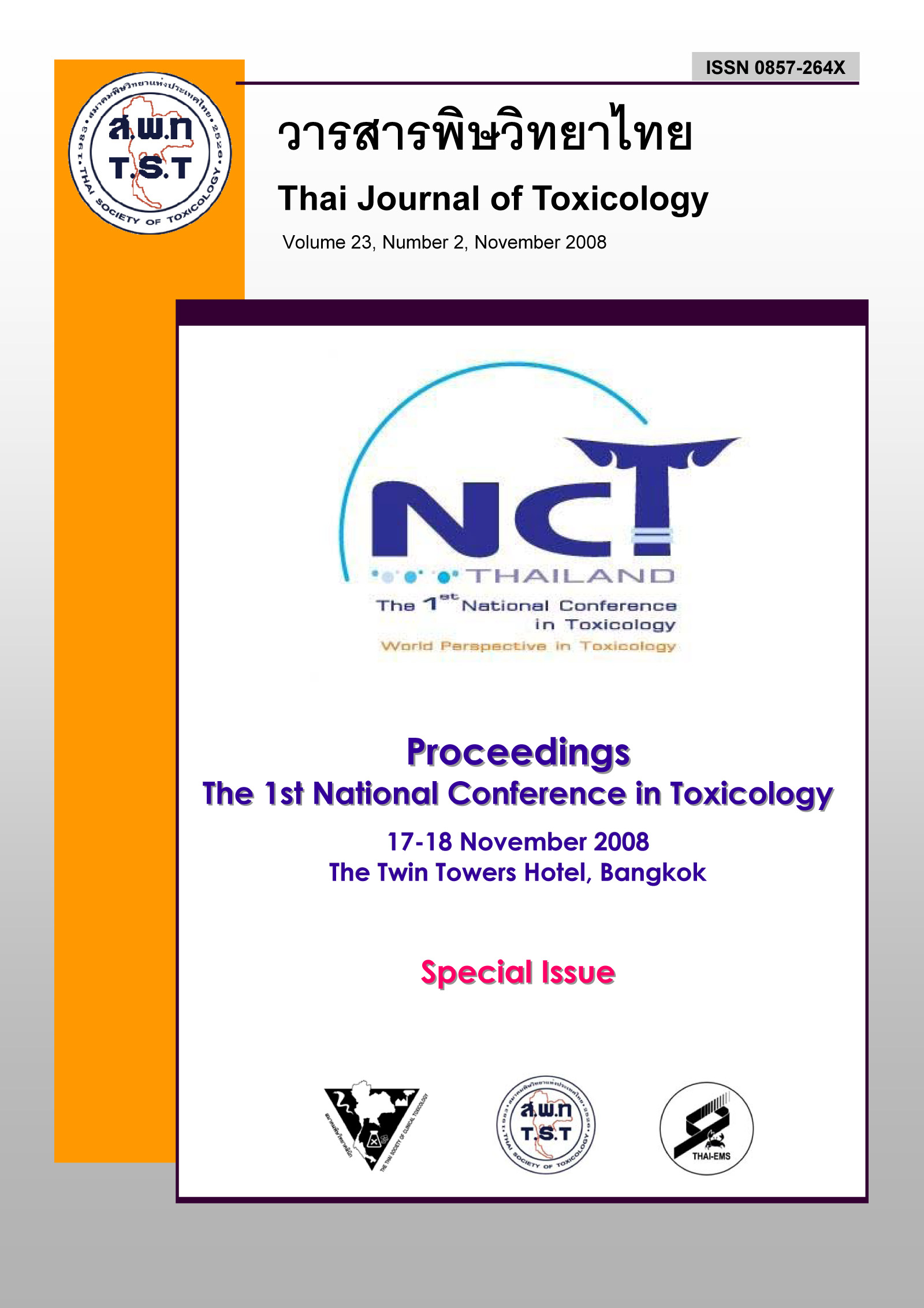Antimutagenicity of Some Thai Dishes on Urethane Induced Somatic Mutation and Recombination in Drosophila melanogaster
Main Article Content
Abstract
This study examined the mutagenicity of Thai dishes, namely Thai main dishes (Tom Yam Kung, Kaeng Liang, Kaeng Som Pak Ruam, NamPrik Kapi, Nam Prik Makam, and Yam Tua Pu) and Thai one dish meals (Khaow Yam Pak Tai, Khanomjeen Nam-ngiew and Khaow Man Som Tam). The antimutagenicity of the samples on urethane (URE) induced somatic mutation and recombination in Drosophila melanogaster was also determined. Eighty trans-heterozygous Drosophila melanogaster larvae, aged three-days old, obtained from virgin ORR; flr3 virgin female and mwh male were transferred to a test tube containing each Thai dish mix with regular medium (mutagenicity study) or regular medium containing 36 mM URE (antimutagenicity study) until they became adult flies. The ratios (w/w) of Thai dish and a mixture of regular medium or regular medium containing URE were 1:1, 1:2 and 1:4. The occurrences of mutant spots on the round wing of surviving flies were analyzed. It was found that all Thai dishes were not mutagenic. The antimutagenicity of three kinds of Thai dishes at ratios of 1:1 and 1:2 were 61-94 percent inhibition and at a ratio of 1:4 were about 45 – 83 percent inhibition. The antimutagenic mechanisms were not clearly elucidated in this study but rather suggested the effects of many antimutagens in the components of each dish. The findings from the present experiment seems to justify the claim that Thai dished are good for health, aside from its superb sensory attributes as produced by mixtures of different ingredients.


